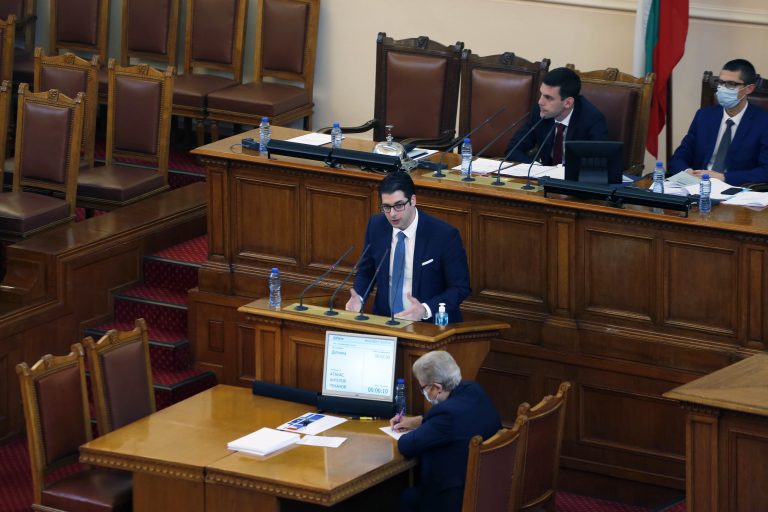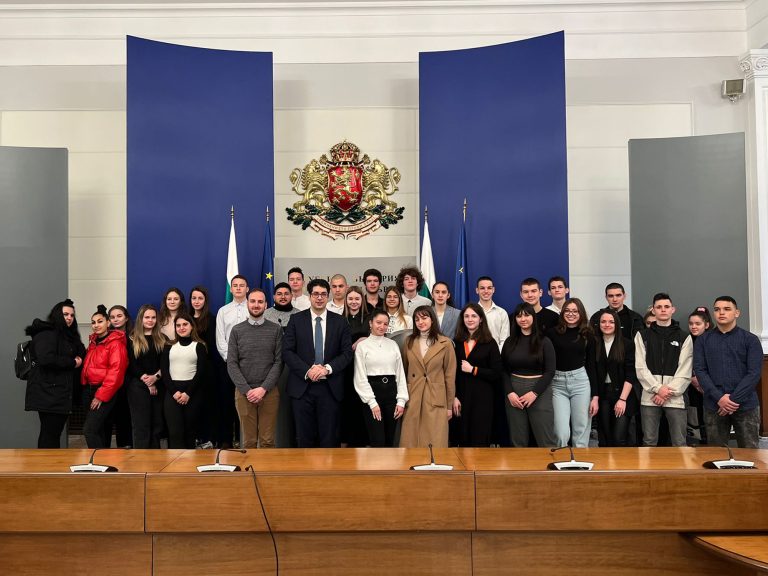
Economist, Austrian Institute of Economic Research (WIFO)
Areas: Monetary and Fiscal Policy, Household Heterogeneity, EMU architecture
Former Deputy Prime Minister of the Republic of Bulgaria (2021, 2022-2023)
PhD and Lecturer at the Vienna University of Economics and Business (WU Vienna)
NOeG Dissertation Fellow, Austrian Economic Association
Fulbright Scholar, Harvard Economics Department 2019/2020
I am an Economist at the Austrian Institute of Economic Research (WIFO) with a focus on monetary and fiscal policy and EMU architecture. I acquired my PhD from the Vienna University of Economics and Business (Wirtschaftsuniversität Vienna). My thesis research revolves around household heterogeneity and how it affects monetary and fiscal policy (see below). I am thankful to the Austrian Economic Association (NOeG) for the financial support throughout my dissertation as a NOeG Dissertation Fellow and to the Bulgarian Fulbright Commission.
Throughout 2021 and 2022-2023 I served as the Deputy Prime Minister of the Republic of Bulgaria in the caretaker governments of Bulgaria. I was in charge of the management of EU Funding, the Bulgarian National Recovery and Resilience Plan, Cohesion and Regional Funding and the co-coordination of the euro adoption process.
I am also a Lecturer at the Vienna University of Economics and Business (Wirtschaftsuniversität Vienna), where I teach Economic Policy with a focus on monetary policy. For the academic year 2019/2020 I was visiting Harvard Economics Department as a Fulbright Scholar. I have previously worked at the European Central Bank (DG Research and DG Economics) and have visited the Institute for New Economic Thinking (INET). I have been a research scholar to the Bulgarian National Bank in 2017 and 2019 and a scholar of the Austrian Economic Association in 2018-2022. I have acquired a Masters of Science in Economics/Economic Policy from University College (London) and a Bachelor in Economics from the Vienna University of Economics and Business.
Throughout 2025 I have served as Senior Adviser for Rud Pedersen Public Affairs Brussels, advising on the EU Budget, the RRF and the Capital Markets Union.
I deliver keynotes, executive briefings and fireside talks on European economic policy, the Economic & Monetary Union (EMU), the Capital Markets Union (CMU), the EU Budget (MFF), Cohesion Policy and NextGenerationEU/Recovery Fund, with a practical lens on Austria, Germany, Italy, France, Spain and Brussels.
You can find my CV here.
PhD Dissertation:
I am extremely thankful to Prof. Jesus Crespo-Cuaresma, Prof. Katrin Rabitsch, Prof. Moritz Schularick and Georgi Kocharkov for their continuous support and guidance throughout my dissertation.
I would like to thank the Austrian Economic Association (NOeG) for the financial support provided as part of the NOeG Dissertation Fellowship and the Fulbright Commission Bulgaria for the financial support.
Monetary Policy and the Redistribution Channel in the Euro area
Abstract: Monetary policy has implicit redistribution effects for households when households are different. This paper is the first to show quantitatively how this changes the transmission mechanism of monetary policy to aggregate consumption response in the euro area. When households have heterogeneous MPCs and balance sheets, three redistribution channels amend the standard consumption response to monetary policy – an earnings heterogeneity channel, an inflation-driven Fischer channel and a real interest rate channel. Implicit redistribution after the monetary policy change creates winners and losers along these three dimensions. I extend the ECB HFCS to obtain a representative euro area dataset with detailed information on household balance sheets and MPCs and calculate the sufficient statistics to evaluate these redistribution channels. The effect of a one-time expansionary monetary policy change on aggregate consumption is amplified by up to 15% in comparison to a model without heterogeneity because of the implicit redistribution from low MPC to high MPC households and their unequal exposure to interest rate, price level and earnings changes. When household earnings elasticities to GDP changes are also heterogeneous, as estimated in the data, the redistribution channel amplifies the effects of monetary policy further to up to 37% in relation to the representative agent model. The relative power of different channels of monetary policy is revisited from the standard model – the redistribution channel with household heterogeneity makes up between 14% and 27% of the total consumption response, while the classical aggregate demand and the substitution channel amount to respectively 53% and 33%.
The Earnings Elasticities to Aggregate Fluctuations in the Euro Area
[Work in progress version of the paper]
Abstract: This paper documents how the earnings of different household groups vary with the change in aggregate GDP in the Euro area. These household earnings elasticities to aggregate economic fluctuations are a crucial moment for models with household heterogeneity – macroeconomics dynamics are transmitted differently throughout the economy when different household types react differently to macroeconomic shocks. This paper is the first to calculate the relative earnings elasticity of different income groups in the countries of the Euro area using three separate datasets and comparing the results. The three datasets deliver a consistent picture of higher earnings elasticities for the bottom income groups which decline along the income distribution. Importantly, the slope of these household betas – the change of individual earnings to aggregate earnings changes, is similar across two very different types of datasets – aggregated data on income groups from the WID and GRID databases, and microdata from the ECB HFCS dataset. This paper is the first to use the HFCS panel dataset to track earnings dynamics of households in the Euro area. It also decomposes the difference between the two types of estimations and shows the importance of individual level data for properly accounting for income mobility. I also analyse the correlation between earnings elasticities of different income groups and their MPC and show that the groups with the highest earnings elasticities γ on average also have higher MPCs. I show this leads to an amplifying multiplier effect which increases the baseline MPC in the economy by between 17% and 34% and therefore the aggregate multiplier by 6.7% to 13.5%.
For comments on recent economic developments, you can follow me on Twitter @atanaspekanov.
Recently I started a Substack blog at https://thebumblebee.substack.com/ where I write about economics, economic policy and the EU.
Other ongoing work: „The Marginal Propensity to Consume, Hand-to-Mouth Households and Fiscal Multipliers in EU countries“ (ongoing work, preliminary version)


